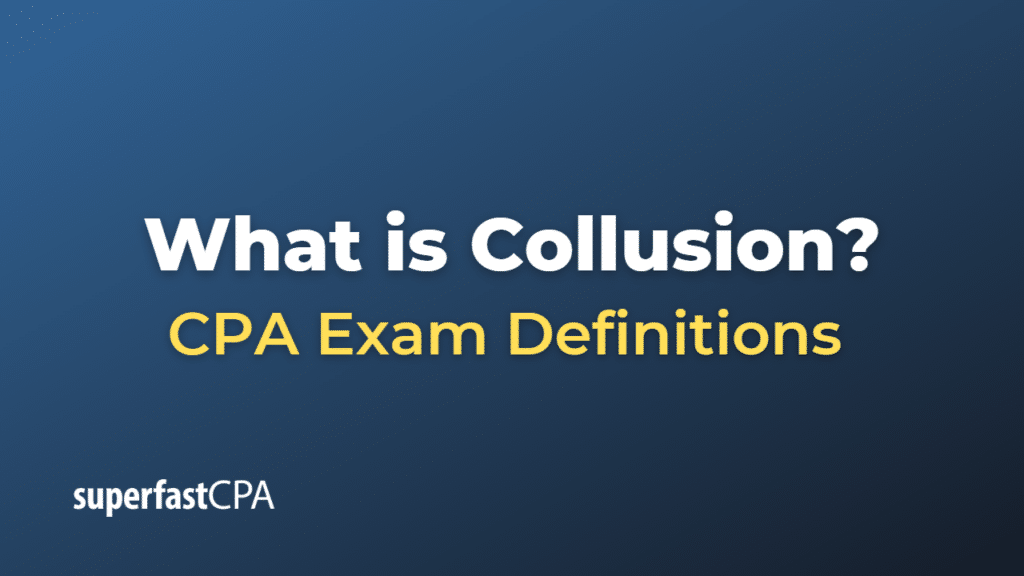Collusion
Collusion is an agreement or cooperation between two or more individuals, businesses, or entities to deceive, cheat, or defraud others, or to gain an unfair advantage in a competitive environment. In the context of business and economics, collusion often refers to anti-competitive practices where firms secretly collaborate to manipulate market outcomes, such as fixing prices, dividing market share, or limiting production. These practices distort the principles of free-market competition and can result in higher prices, reduced product quality, or limited consumer choices.
Collusion is generally considered illegal and unethical because it undermines the proper functioning of a competitive market, leading to negative consequences for consumers and the economy as a whole. In many countries, anti-trust or competition laws exist to prevent and penalize collusive behavior.
Some examples of collusion include:
- Price-fixing: Competing firms may secretly agree to set the same prices for their products, eliminating price competition and artificially raising prices for consumers.
- Bid-rigging: In public procurement processes, competing bidders may coordinate their bids to ensure that a particular company wins the contract, effectively eliminating competition and potentially leading to higher costs for the procuring entity.
- Market allocation: Competing firms may agree to divide market share or geographical territories among themselves, restricting competition in specific regions or among certain customer segments.
It’s important to note that not all cooperation between businesses or entities is considered collusion. Legitimate collaborations, such as joint ventures or partnerships, can have positive effects on innovation and efficiency, provided they do not restrict competition or harm consumers.
Example of Collusion
One famous example of collusion is the case of the global “Vitamins Cartel” that operated during the 1990s. The cartel involved several major vitamin manufacturers, including Roche, BASF, Aventis (now part of Sanofi), and others, who colluded to fix prices and allocate market share for several types of vitamins, such as vitamin A, vitamin C, and vitamin E.
These companies controlled a significant portion of the world’s vitamin market and secretly coordinated to set prices, agree on production quotas, and allocate customers among themselves. Their goal was to maintain artificially high prices and maximize profits at the expense of consumers and smaller competitors. The cartel operated in various markets, including the United States, Europe, and Asia.
The Vitamins Cartel was eventually exposed in the late 1990s, and multiple government authorities launched investigations into the companies involved. In 1999, the US Department of Justice filed criminal charges against several firms, and the European Commission imposed record fines totaling nearly €1 billion (about $1.1 billion) on the cartel participants. The companies also faced class-action lawsuits from customers who had been overcharged due to the collusive practices.
This example highlights the significant harm that collusion can cause to consumers and competitive markets. The exposure and subsequent punishment of the Vitamins Cartel led to greater awareness and enforcement of anti-trust regulations worldwide.













